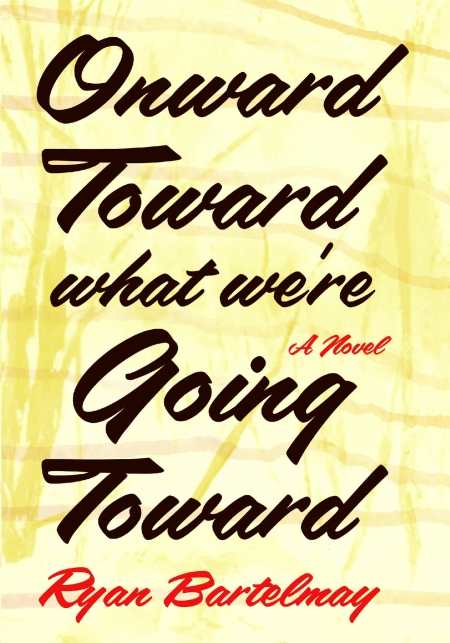
Onward Toward What We're Going Toward
With characters that are sometimes uncomfortably human, Bartelmay lays plain the gut-wrenching ways people cope with suffering.
Set primarily in the small town of Middeville, Illinois, during the second half of the twentieth century, Onward Toward What We’re Going Toward follows Chic Waldbeeser as he navigates marriage, fatherhood, his relationship with brother, Buddy, and his desire for his brother’s wife, Lijy.
After Chic’s son, Lomax, dies at age ten—a tragic accident that Chic blames himself for—Chic and wife, Diane, spiral into depression, addiction, and denial while tiptoeing around inside the comfortable façade of their marriage. Buddy and Lijy have their own difficulties, which they cope with through natural health remedies, massage, and a business venture.
Intersecting Chic’s story as he approaches old age are fifty-something newlyweds Mary Norwood and Green Geneseo—a former semipro pool player and wannabe bookie, respectively—who leave Las Vegas for Peoria, Illinois, hoping to start a life that resembles the one they always imagined themselves living.
Told through a winding, nonlinear, and omniscient narration, it is Bartelmay’s craft that carries the novel. There is no complex plot or feel-good ending for a worthy protagonist here. Through a style reminiscent of Jonathan Franzen’s The Corrections, readers will find themselves in the uncomfortable space of not being sure if they should root for anyone.
But this isn’t because of criminal behavior or any sort of treachery. It’s because Bartelmay lays plain—with humor and tenderness and acute honesty—the gut-wrenching ways people cope with suffering. Character habits like lying, eating, drinking alcohol, masturbating, gambling, new relationships, and endless mind chatter are finely teased out and used repetitively to drive home just how terribly easy it is to get stuck inside one’s own grief. We don’t know who to root for because we see our reflections in Chic and Diane and Mary—and sometimes, we simply don’t root for our own humanness. Like Bartelmay’s characters, we live and teeter on the cusp of love, of change.
There is poetry here as well, and not just because Chic takes to haiku writing and beret wearing as he searches for identity and connection. Certain lines and images resonate deeply—Lomax finding the “seed” inside a baseball, the melted ice cream at Diane’s death. The novel also functions as a quasi-ode, or perhaps an elegy to small-town Middle America. The picture painted is not rosy but accurately depicts the loneliness that can be felt even where everybody knows your name.
Onward Toward What We’re Going Toward is part family drama, part cautionary tale, part story of America. With a bittersweetness that is both palpable and instructive, Bartelmay’s fine book will likely affirm one’s own desire to live beyond the cusp.
Reviewed by
Margaret Fedder
Disclosure: This article is not an endorsement, but a review. The publisher of this book provided free copies of the book to have their book reviewed by a professional reviewer. No fee was paid by the publisher for this review. Foreword Reviews only recommends books that we love. Foreword Magazine, Inc. is disclosing this in accordance with the Federal Trade Commission’s 16 CFR, Part 255.
